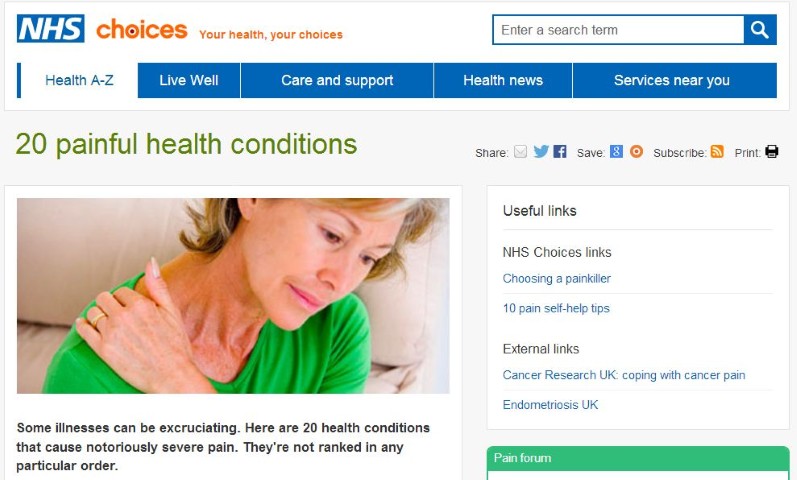On 9 January 2011, an ambulance crew was called out to help Sarah Mulenga, 21. Sarah had collapsed after becoming ill at her home in Barking, she had sickle cell.
Sickle cell is a genetic blood disorder which can restrict blood flow leading to painful and potentially lethal episodes called crisis. Pain management requires specialist knowledge and often involves the use of analgesics or opiods alongside basics like oxygen and water.
When the ambulance arrived, the team of two paramedics looked at Sarah who had collapsed and since soiled herself and left the premises after refusing to take her to hospital.
They did not check her or render any care whatsoever.
Her landlady Chinwe Moneke called for an ambulance again explaining that Sarah had sickle cell and was seriously ill. The ambulance crew arrived but again refused to treat or help her. It is reported that one of them even told Sarah “If you want to be taken to hospital, then get up so we can take you.”
Once they had left, Moneke cleaned up Sarah and now very worried about her deteriorating condition called again for another ambulance. By now Sarah’s sister had arrived on the scene. This time paramedics took her to hospital but she passed away the same evening.
The ambulance staff were taken off frontline duties following a complaint about their inhumane and rude behaviour.

Two years later and an inquest into the tragic incident has found that the London Ambulance Service (LAS) paramedics were neglectful in failing to carry out a basic set of observations.
However whilst the coroners report claims that Sarah’s death was as a result of “natural causes”, it confirms that this was “contributed to by this neglect”.
In 2008, the publication of “A Sickle Crisis?”, the groundbreaking NCEPOD report reviewing nationwide deaths from sickle cell disorder produced devastating findings.
It found that in nearly half of the cases examined, “the actual cause of death was debatable or unknown” and that “Patients who were acutely ill were not offered support from sufficiently experienced medical staff”.
The report concluded that “simple measures might well have avoided some of these deaths”.
This is a serious matter.
Unlike a flesh wound or broken limb, the only way to detect blood sickling in a patient is to monitor internal processes.
The symptoms are most commonly deep pain in bones and joints, it affects the chest, back, legs, knees, arms and abdomen. Patients may also have fever, hypertension, alongside nausea and vomiting.
As a result, this lack of overt external indications of sickle crisis’s had led to a situation where someone can be denied medication whilst in excruciating pain and at risk of serious damage to internal organs.
One of the biggest complaints of patients with sickle cell is that of being denied pain relief due to their not being believed.
Toyin Agbetu of the Ligali organisation said;
“Irrespective of ignorance, all NHS personnel have a duty of care to their patients. At the very least this includes checking the condition of someone who has collapsed or is in pain, irrespective of whether they are incapacitated.
It is an unforgivable fact that Sarah Mulenga, a vulnerable person at her time of most urgent need was treated inhumanely when she was denied basic health care. I believe these neglectful actions by the ambulance paramedics ultimately led to her passing.
Even if the crew and LAS were totally ignorant of the national guidelines on sickle cell management procedures, if they had just had the decency to demonstrate a little compassion I believe Sarah would still be alive today.””
LAS's Assistant Director of Operations Katy Millard said; “We are extremely sorry that the standard of care Sarah received by the first ambulance crew was well below what we expect from our staff.”
The ambulance workers who failed to treat Sarah are no longer employed by LAS.

External Links
Student died after ambulance crew refused to treat herIgnorance about sickle cell disease is no excuse for poor NHS careSarah Mulenga died after trainee paramedics failingsNCEPOD - Sickle: A sickle crisis? (2008)NHS Sickle Cell & Thalassaemia Screening Programme
Government failing on support for sickle cellSickle cell ignorance leads to passing of Sarah Mulenga
Sickle cell is a genetic blood disorder which can restrict blood flow leading to painful and potentially lethal episodes called crisis. Pain management requires specialist knowledge and often involves the use of analgesics or opiods alongside basics like oxygen and water.
When the ambulance arrived, the team of two paramedics looked at Sarah who had collapsed and since soiled herself and left the premises after refusing to take her to hospital.
They did not check her or render any care whatsoever.
Her landlady Chinwe Moneke called for an ambulance again explaining that Sarah had sickle cell and was seriously ill. The ambulance crew arrived but again refused to treat or help her. It is reported that one of them even told Sarah “If you want to be taken to hospital, then get up so we can take you.”
Once they had left, Moneke cleaned up Sarah and now very worried about her deteriorating condition called again for another ambulance. By now Sarah’s sister had arrived on the scene. This time paramedics took her to hospital but she passed away the same evening.
The ambulance staff were taken off frontline duties following a complaint about their inhumane and rude behaviour.

Sarah Mulenga: Died after ambulance team refused to taek her to hospital
Neglect
Two years later and an inquest into the tragic incident has found that the London Ambulance Service (LAS) paramedics were neglectful in failing to carry out a basic set of observations. However whilst the coroners report claims that Sarah’s death was as a result of “natural causes”, it confirms that this was “contributed to by this neglect”.
In 2008, the publication of “A Sickle Crisis?”, the groundbreaking NCEPOD report reviewing nationwide deaths from sickle cell disorder produced devastating findings.
It found that in nearly half of the cases examined, “the actual cause of death was debatable or unknown” and that “Patients who were acutely ill were not offered support from sufficiently experienced medical staff”.
The report concluded that “simple measures might well have avoided some of these deaths”.
This is a serious matter.
Unlike a flesh wound or broken limb, the only way to detect blood sickling in a patient is to monitor internal processes.
The symptoms are most commonly deep pain in bones and joints, it affects the chest, back, legs, knees, arms and abdomen. Patients may also have fever, hypertension, alongside nausea and vomiting.
As a result, this lack of overt external indications of sickle crisis’s had led to a situation where someone can be denied medication whilst in excruciating pain and at risk of serious damage to internal organs.
One of the biggest complaints of patients with sickle cell is that of being denied pain relief due to their not being believed.
Toyin Agbetu of the Ligali organisation said;
“Irrespective of ignorance, all NHS personnel have a duty of care to their patients. At the very least this includes checking the condition of someone who has collapsed or is in pain, irrespective of whether they are incapacitated.
It is an unforgivable fact that Sarah Mulenga, a vulnerable person at her time of most urgent need was treated inhumanely when she was denied basic health care. I believe these neglectful actions by the ambulance paramedics ultimately led to her passing.
Even if the crew and LAS were totally ignorant of the national guidelines on sickle cell management procedures, if they had just had the decency to demonstrate a little compassion I believe Sarah would still be alive today.””
LAS's Assistant Director of Operations Katy Millard said; “We are extremely sorry that the standard of care Sarah received by the first ambulance crew was well below what we expect from our staff.”
The ambulance workers who failed to treat Sarah are no longer employed by LAS.

External Links
Student died after ambulance crew refused to treat herIgnorance about sickle cell disease is no excuse for poor NHS careSarah Mulenga died after trainee paramedics failingsNCEPOD - Sickle: A sickle crisis? (2008)NHS Sickle Cell & Thalassaemia Screening Programme
Ligali is not responsible for the content of third party sites
Government failing on support for sickle cellSickle cell ignorance leads to passing of Sarah Mulenga
Speak Out!
Click here to speak out and share your perspective on this article.It is an unforgivable fact, that Sarah Mulenga, a vulnerable person at her time of most urgent need was treated inhumanly when she was denied basic care. If the paramedics had just demonstrated a little compassion Sarah be alive today.
Toyin Agbetu, Ligali Organisation
See Related:





Get involved and help change our world